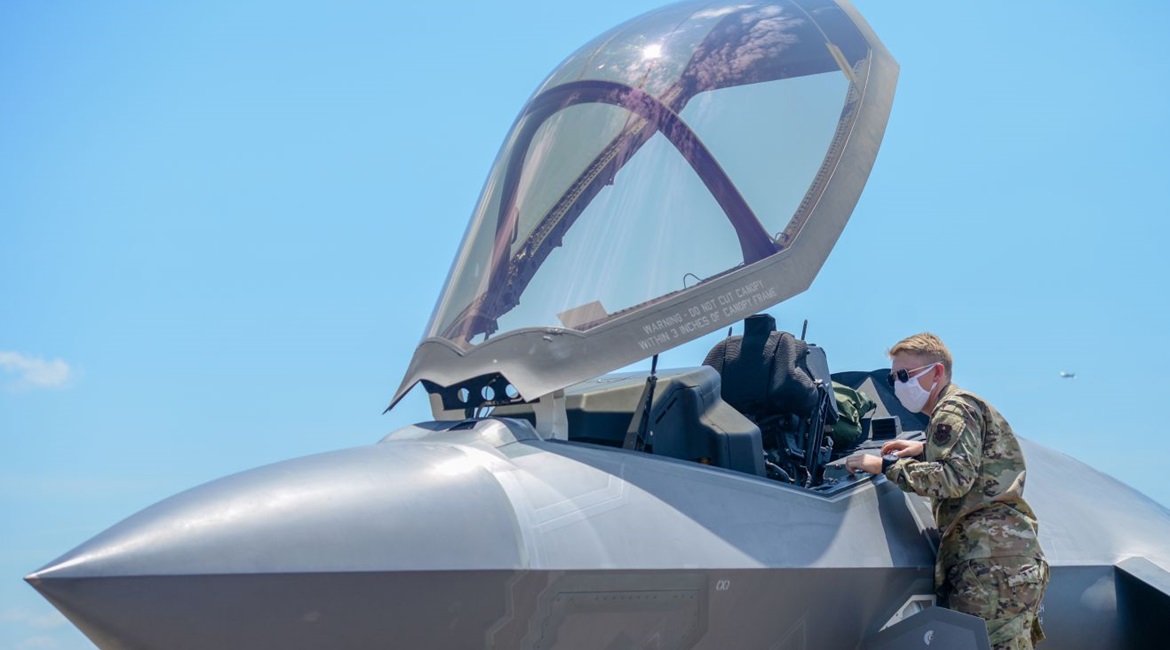
Insufficient staffing and differences in measuring F-35 aircraft availability hours between services, international partners, and customers are the reason that the Pentagon potentially overpaid Lockheed Martin performance-incentive fees for the Lightning II Joint Strike Fighter (JSF), according to a former programme official.
In a 22 July House Oversight and Reform Committee hearing; Theresa Hull, Pentagon assistant inspector general for audit acquisition, contracting, and sustainment, testified that the F-35 Joint Program Office (JPO) had potentially overpaid USD10.6 million in performance-incentive fees by not independently collecting and verifying aircraft availability hours. This, she said, is because the JPO did not conduct adequate oversight of Lockheed Martin’s performance related to receiving F-35 spare parts and verifying aircraft availability hours.

A member of the Columbus Air Force Base Fire Department inspects the interior of an F-35A on 7 August 2020 at Columbus AFB in Mississippi. The Pentagon potentially overpaid USD10.6 million in performance-incentive fees by not independently collecting and verifying F-35 aircraft availability hours. (US Air Force)
Speaking under condition of anonymity, the former F-35 official told Janes on 4 August that the JPO was not independently collecting and verifying aircraft availability hours because the three US military services, eight partner nations, and five Foreign Military Sale (FMS) customers all collected this information differently. Even the US military services, he said, have their own unique ways of measuring the readiness of their aircraft.
“For the JPO to try to collect all that information independently would mean that we would have had to have hundreds of more people in hundreds of different places for all the different services and partners flying aircraft because they measure it differently,” the former F-35 programme official said.
Looking to read the full article?
Gain unlimited access to Janes news and more...






